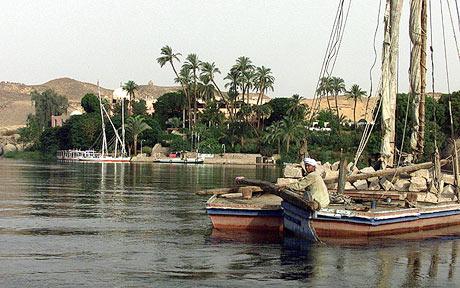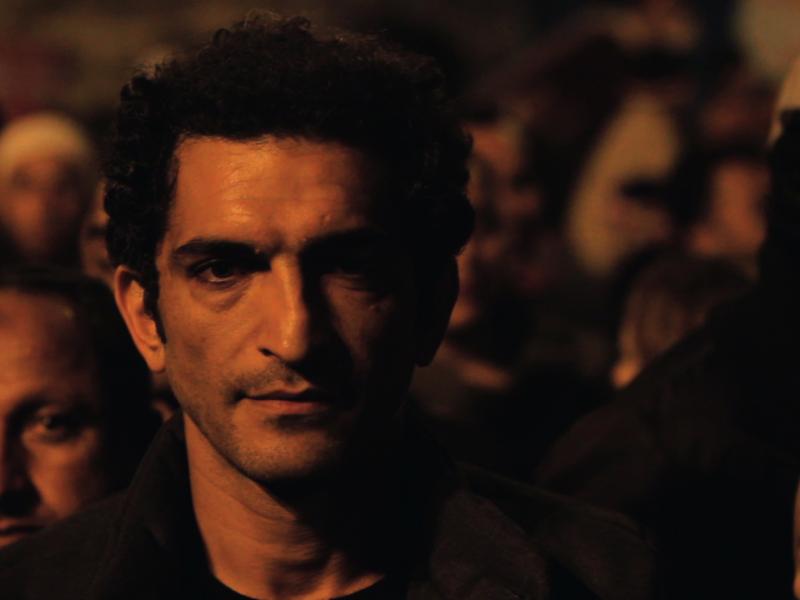In his essay On Writing: Memoirs on the Craft, renowned horror novelist Stephen King stresses, “Tell the truth”. I never knew what it meant until I came across the novel Sabil Elghariq by Reem Basiouny.
The novel foregrounds a sweeping love story that anchors characters and helps them evolve as well as connect readers. It provides them with the tools to understand the historical context which is the thematic preoccupation of the novel, yet it becomes a personalised history and an internalised human experience.
Touching upon the critical issues of power, the disadvantaged and the marginalised, slavery and girl’s education constructed in a discourse of “rights” and “political representations”, the novel reveals the author’s outward courage of brandishing women’s empowerment. It also looks at the Egyptian national discourse and the atrocities of colonial rule, yet manages to sweep all tension under the rug in a blink of an eye foregrounding the chances seized for the main love story to thrive.
Galila, the main character in the novel, is an enlightened, intellectually productive woman. She has small and scattered chances of teaching in an all girl school, and installs a short lived school at her home. She also writes and publishes under a pen name. She is married to an uneducated slave, who ironically helps her pursue knowledge.
Hassan is situated as protector, lover, and intellectual person. He has a mystic, beautifully constructed character. He witnesses and lives major shifts and turns in the history of Egypt.
His story begins when an old landowner dies, leaving behind his wife and Galila. The old man entrusted this slave with the protection of his family and fortune.
It was never an easy game; the idea of slavery reveals the discrepancy between heavy handed social expectations and chances for individual empowerment through love, education, and making money.
Hassan deliberates and peels off his slave identity to the extent that he defies British colonial rule by secretly manufacturing and exporting Egyptian cotton. He flashes with agility in different situations revealing prudence and gifts of silence, unquenchable love, invisibility at times, as Galila’s (or her family, too) saviour.
The character keeps scaling up until it becomes so grand, like a Shakespearean hero (cursed at the start of the novel, suffering the tragic mistake), and hopefully redeeming his fate through understanding life and offering a memory of gratitude. The story is like an epic intricately weaving multiple points in history through massive action and consistent emotional connection.
Egypt holds importance for the global enlightenment project and the “price” of dreaming of reform, exploitation at the hands of the powerful and the interplay of defeat and victory. Life at its full fledged glory, is never a complete circle of victory or defeat, but a kaleidoscope of one possibility out playing its antithesis.
Juxtaposition allows us to celebrate the oscillation between the main love story line and its historical and mystic context. One plot line gives us the energy and patience to grasp another unfolding world around the corner. While gender roles and life forcing “new” roles were negotiating at one and same moment, the shifts and turns driving human suffering is only aggravated by “fear” and human calculation that are always fallacious subjectivities. The Mamluk Sultan chooses to play safe, but defeated, and the bitter and shaky Shady Basha observes social norms, plays safe, and denies himself reunion with his should-be source of pride, empowered and rich, Hassan. Hindsight becomes a blessing. We learn from the feelings, reasoning of history makers, hear their fears and know that Hassan made it only through faith in the fleeting possibility, and that it was never about following the rules or playing safe!
Memory is a powerful compass, through accepting defeat and going beyond personal wishes and weaknesses, the hard path, that of the unpredictable water, that becomes the only means to safety. Hassan is mostly the silent doer, Galila the struggling and persistent communicator, their mothers the swept and the overwhelmed, all exchanging roles and redefining their boundaries constantly. All complexities in action under an anchoring sense of reassurance, love and gratitude.
 Enlightenment is also driven through an eighteenth century romantic novel style. It is about households, social mobility, structural changes, traditional and unhappy marriages versus love, fallen gentry (social classes threatened under colonisation, lack of the rule of law and power games), and finally the letters!
Enlightenment is also driven through an eighteenth century romantic novel style. It is about households, social mobility, structural changes, traditional and unhappy marriages versus love, fallen gentry (social classes threatened under colonisation, lack of the rule of law and power games), and finally the letters!
Letters in this novel were not the classic love letters to connect the two lovers, they were historical messages handed in to Hassan in person in order to remind him of historical defeat and his civic responsibility to accept the quest for empowerment. He embraces business as the most productive tool for victory, geared his compass with memory and warmed his heart with extended love. Although the Orabi revolt is celebrated as a nationalistic move, it was through the Mamluk Sultan, the Italian messenger, and the European business partner, that Hassan has anchored chances for success and empowerment. According to the author, it is always the sea (the unpredictable and the forbidden), and always the human that enriches and empowers.
The novel proceeds in grace flipping perspectives around until it harmonises otherwise classic antagonisms. British colonisation and Galila’s love and trust to her dwarf British teacher, Daisy (British but marginalised); reading French books and celebrating Sheikh Mohamad Abdo as a figure in the Orabi Revolt; Private household worlds and the cutting edge spaces of business and wars were smoothly generated with the author’s mature language and story-telling techniques. There is constant interplay between symbols of land and water (with flipped implications: water stands for safety or defeat); the world of the reader and the world of the novel; trust in faith and mystic elements vs crushing surprises and an aggregate of challenges.
The language binds people and different moments through repeating words of wisdom on different occasions. I will, however, choose to reveal how the characterisation of Galila herself was stretched as a symbol of Egypt. The initial proposition of her life-long debt and Saad Zaghloul as “her” attorney brings about this level of symbolism. The basic proposition is that Orabi did not cause the British invasion, so if she helped around by communicating messages to them, then she, too, cannot be blamed for the Alexandria casualties and cannot be held accountable for this debt.
It reveals how the author sweeps the actual familiar charge against Orabi (that he was blamed for the invasion) under the rug and foregrounds the case of Galila as a courageous helper, faithful dreamer of reform and the sufferer of charges and debts.
We never stop at the historical controversy of Orabi’s responsibility, we hear of fights among people, and live the actual price and pain of Galila’s loss and subsequent suffering (that is foregrounded and fades to the background at times) until the day she dies.
Patriotic, politically active, a staunch believer in education and equality, and married against social norms, Galila was tested to live her Enlightenment ideals by marrying her own slave then accepting love and exercising assurance and gratitude. She lives the enlightenment and Hassan made it possible.
The novel is not just an enchanting love story contextualised in critical historical moments; it is a healing process drawing on history, emotions and rich language to create new links of knowledge and personal reflection for the reader. Repetitive attempts to accumulate power and victory, or escape defeat and suffering, when all is washed away, left the reader along with the protagonist, with grateful heart and a memory of the beauty of life. The reader joins in perspective of gratitude, bliss, forgiveness and understanding to heal.
If I were to thank the author, it wouldn’t be for her exquisite artistic expression or the magnificent worlds she builds and washes away with skill and grace, it would be for her kind view of the world. Right from the opening lines dedicating her book to “Tarek” and ending with her throbbing whispers taken from the words of Hassan, as her mouth piece, even when all is lost, our only redemption lies in courageous attempts to victory, our memory of a graciously giving life and an understanding grateful heart. It is the novel to read, grow and heal.


